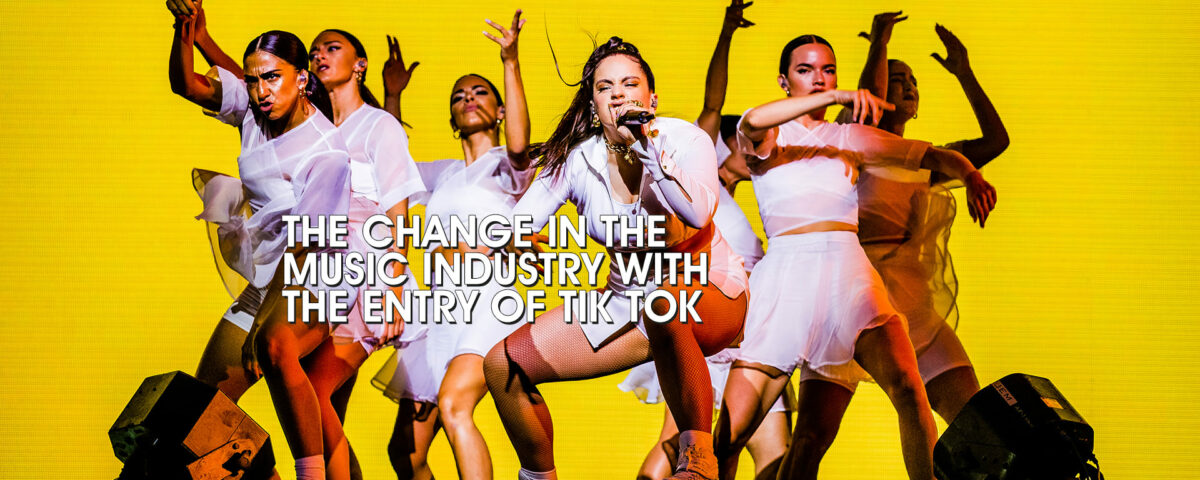The music industry, as well as many other branches of different sectors, both cultural, labour, social and economic, have undergone drastic changes and have evolved with the arrival, and constant development, of the internet, in the first instance, and the subsequent arrival, and growth, of social networks.
Before the digital era, vinyl and cassette were the predominant music media on the market until the advent of the Compact Disc, or CD, and, later, MP3; and, in turn, the industry based all its power and influence on the control of music distribution and record labels, which were in charge of most of the value chain process: the production, dissemination and consumption of artists' creations. Advances in technology and the internet enabled the creation of software for storing music on computers and in the 'cloud' and, subsequently, the emergence of online music streaming platforms and music apps such as Spotify and Apple Music.
Today, content creators can offer their product directly, without the need for intermediaries. The artist himself has the possibility to create, edit, produce, market and distribute his content on a single digital platform, website or social network.
Tik Tok is an effective tool for performing value chain functions within music production as it performs several functions: it creates artists, increases the sales and impact of those already in the industry, and brings back forgotten songs. In short, Tik Tok has become an essential element in music industry strategies and is therefore a tool for change and transformation, which is already taking place within the music industry.
It also creates, and increases, opportunities for artists with little experience and for those with a lot of experience. And for artists who have had a song from previous years go viral and reconnect with a current audience. Tik Tok allows you to respond to comments with a video, which has encouraged more content of all kinds to be made on the app. In the case of musical artists on Tik Tok, it is common for followers to request or suggest songs, which is how more than one talent has been discovered on the social network.
In this way, both established and up-and-coming artists have found a tool for promotion and communication with Tik Tok. It has been found that all the users analysed who have an account on the social network announce their music through it and, in turn, at least one of the songs announced since the famous singers have had an account has become a challenge, trend or dance on Tik Tok.
In conclusion, it can be confirmed that Tik Tok has become an instrument within the marketing phase of industries by being a channel for disseminating information. At the same time, given the success triggered by the platform, it has been deduced that the industry has incorporated, in the marketing stage, a strategy that consists of adapting the product to the social network and vice versa. For example, the case of Rosalía, in which the video clip integrates a choreography designed to go viral on Tik Tok. Or, on the other hand, the social network to the product, for example, by creating a dance or a song challenge.
The change in the music industry with the entry of Tik Tok
The music industry, like many other sectors, both cultural and economic, has experienced significant changes with the advent of the internet and the subsequent growth of social networks. One of the most significant changes has been the shift in music distribution and consumption. The change in the music industry with the entry of Tik Tok has been particularly impactful.
The change in the music industry with the entry of Tik Tok: A shift in music distribution
Before the digital era, vinyl and cassette were the predominant music media on the market. The advent of the Compact Disc (CD), MP3, and later online music streaming platforms like Spotify and Apple Music, completely transformed the industry. The power once held by record labels in controlling music distribution has now been dispersed. Artists can now create, edit, produce, market, and distribute their content on a single digital platform, website, or social network.
The impact of Tik Tok on music production
Tik Tok has become an effective tool in the music production value chain. It not only creates artists but also increases the sales and impact of those already in the industry. It even brings back forgotten songs. In short, Tik Tok has become an essential element in music industry strategies. It is a tool for change and transformation, which is already taking place within the music industry.
Opportunities for artists
Tik Tok also creates and increases opportunities for artists, both those with little experience and those with a lot. It even allows artists with a song from previous years to go viral and reconnect with a current audience. It is common for followers to request or suggest songs on Tik Tok, leading to the discovery of new talents on the social network.
Marketing strategies in the music industry
In conclusion, Tik Tok has become an instrument within the marketing phase of industries by being a channel for disseminating information. Given the success triggered by the platform, the industry has incorporated in the marketing stage a strategy that consists of adapting the product to the social network and vice versa. This strategy can be seen in cases like Rosalía, where the video clip integrates a choreography designed to go viral on Tik Tok.


